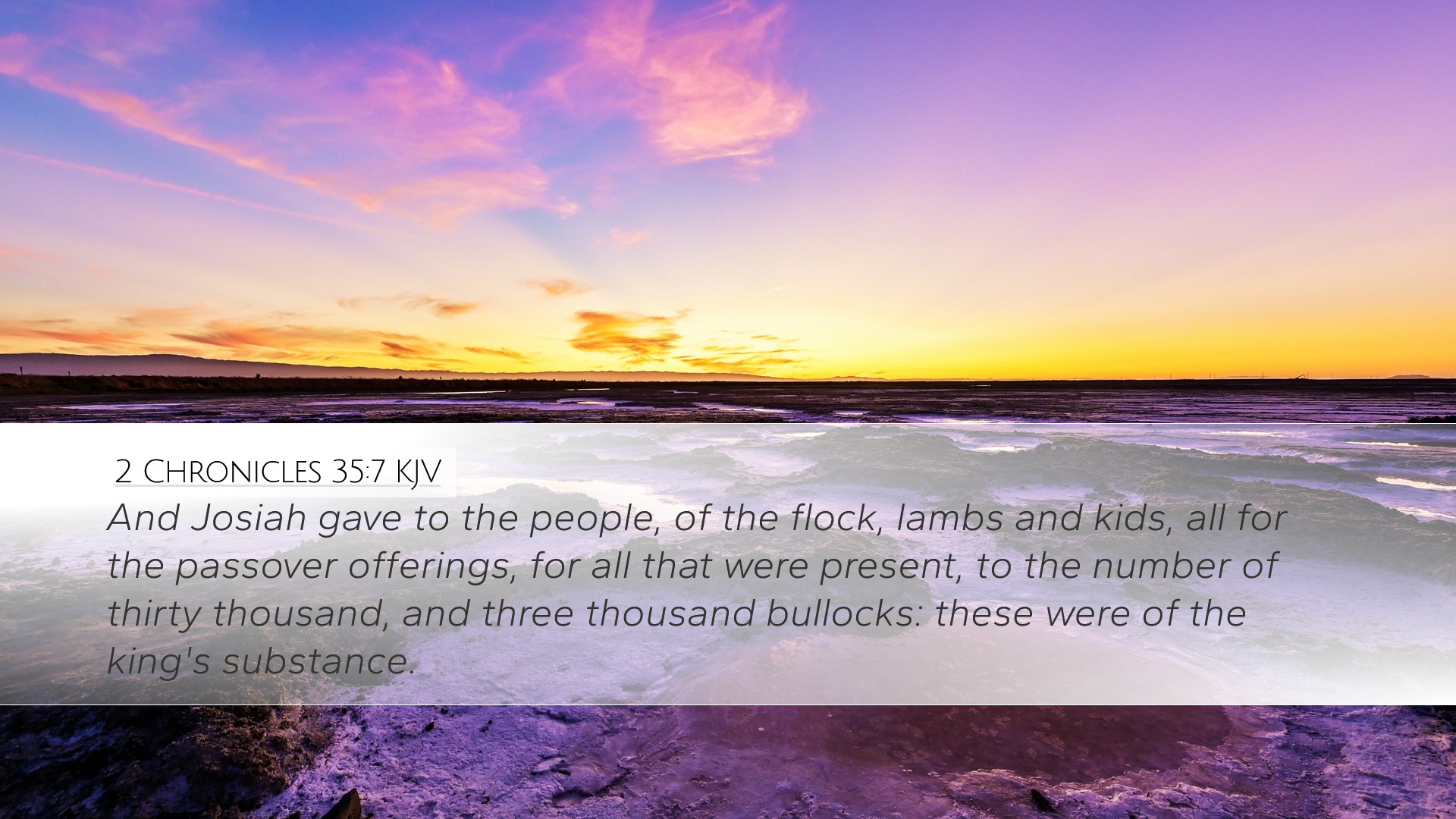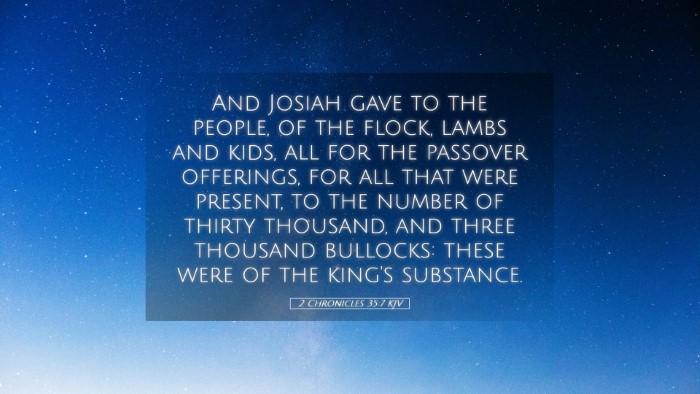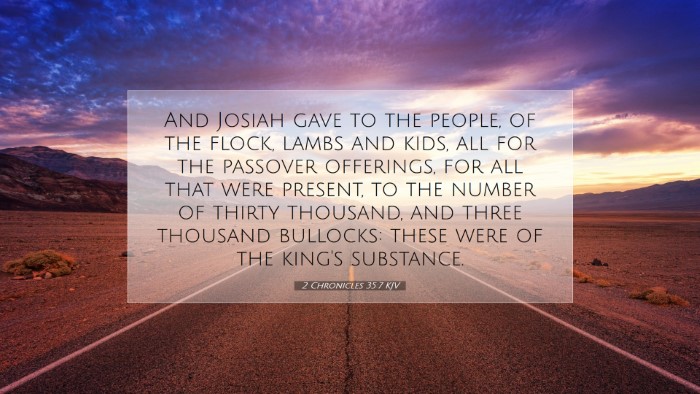Commentary on 2 Chronicles 35:7
Verse Context: 2 Chronicles 35:7 states, "And Josiah gave to the people of the flock, lambs and kids, all for the passover offerings, for all that were present, to the number of thirty thousand, and three thousand bullocks: these were of the king's substance." This verse occurs within the narrative of King Josiah's extensive reforms and reinstitution of the Passover, signifying the importance of the festival and the king's devotion to God.
Introduction to Josiah's Reformation
The reign of King Josiah is marked by significant religious reforms aimed at restoring true worship in Judah. His determination to return to the practices outlined in the Law of Moses is evident throughout his reign. In this particular verse, we see a vivid picture of royal generosity and commitment to the worship of Yahweh as he prepares for the Passover—a fundamental observance in the Jewish calendar.
Historical and Cultural Significance
The Passover itself commemorates the deliverance of the Israelites from Egyptian bondage, symbolizing God's redemptive power. It is crucial for theologians and scholars to understand the weight of this festival, which not only strengthens communal identity but also serves as a practice of remembrance of God's faithfulness.
Insights from Public Domain Commentaries
Matthew Henry's Commentary
Henry emphasizes the lavishness of Josiah’s offerings as reflective of both his deep piety and his desire to lead by example. He notes, “It is the king’s own substance that he gives, showing that he counted it his honor to bear this burden, and to present it as a testimony of his devotion to and appeasement of God.” This was not merely a formality, but a heartfelt provision for God's worship, illustrating the connection between governance and spirituality.
Albert Barnes' Notes
Barnes provides insight into the numerical aspect of the offerings. He remarks on the significance of the “thirty thousand lambs and kids” and the “three thousand bullocks,” suggesting that such quantities reflect a communal effort, where the king's generosity encouraged participation among the people. He posits that Josiah's actions were intended to revitalize the people's faith and re-engage them in the observance of crucial religious duties.
Adam Clarke's Commentary
Clarke highlights the importance of these sacrificial offerings in restoring the worship of God and the unity of the Israelites. He notes, “The Passover was the great festival of the Jewish religion, and Josiah’s resumption of its observance after a long period of neglect indicates a significant turning point for the nation.” Clarke underscores the importance of Josiah's leadership in fostering a spiritual revival among the people.
Theological Implications
From a theological standpoint, this verse underscores the principle of stewardship and the proper use of resources in worship. Josiah’s actions convey a deep understanding that true worship involves sacrifice, and that leaders have a duty to foster a culture of worship and reverence towards God. It prompts pastors and leaders to reflect on their own responsibilities in guiding their congregations towards significant and meaningful worship experiences.
Application for Today's Church
- Generosity in Worship: Just as Josiah gave generously for the Passover, today’s church leaders are encouraged to foster a spirit of generosity in their congregations, not only in terms of financial giving but also in service and commitment to the community.
- Importance of Leadership: The influence of Josiah’s reforms signifies the impact of leadership on the spiritual health of a community. Church leaders must strive to model faithful living and encourage their congregants to embrace their spiritual duties.
- Cultural Relevance of Festivals: Understanding the significance of religious observances in modern worship can help congregations find ways to incorporate historical traditions into their practices, thus enriching their faith and community life.
Conclusion
In conclusion, 2 Chronicles 35:7 encapsulates not only the devotion of King Josiah but also serves as a rich resource for understanding the interplay between leadership, worship, and community in a faith context. Drawing insights from historical commentaries allows modern readers—pastors, scholars, and students alike—to grasp the enduring principles of generosity, stewardship, and the importance of traditions in the life of both the individual believer and the church as a whole.


